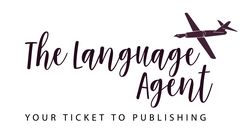Gone are the days when getting published meant scoring a deal with a traditional publisher—one of the Big Five publishers. The internet has truly leveled the playing field. There are more opportunities and options to publish than ever before. Information on both traditional publishing and self-publishing is at your fingertips anywhere, anytime, and you can work with self-publishing professionals without ever meeting them in person. Everything is done electronically—what’s not to like about it?
You now have more reasons than ever to jump on the publishing bandwagon. Here are some of them.
1. You will establish authority and credibility.
By writing a book, you’ll become a recognized expert in your field, no matter what it is, no matter your profession. You don’t have to be a boss dude or a boss babe solopreneur making six figures. (It obviously doesn’t hurt to be one, though!) You don’t even need to be a celebrity CEO or multibillionaire owner of a global company either. Not Warren Buffett, Elon Musk, or Oprah? No problem. You’re definitely qualified to write a book if you offer services locally as a plumber, mechanic, housecleaner, hairstylist, yoga instructor, baker, or whatever you can think of.
If you’re an employee, a job seeker, or a career changer, your book can be a ticket to more opportunities—promotions, job offers, etc. You can also easily set yourself apart from the crowd. Anyone can whip out a résumé, but how many people can actually list a book they’ve written on their CV?
Anyone can blog or print out business cards, but not everyone is willing to put considerable effort into writing and publishing a book. Dare to be different. Start drafting your manuscript and get noticed sooner, not later.
Having a book on your list of credentials can also help overcome sales objections and clear up misconceptions about your line of work. Are you in network marketing? Present yourself as an ethical professional who teaches others how to attract prospects through content creation and authentic content marketing instead of pestering your friends and family and messaging random strangers you’ve just met on social media to join your company. (Yes, I had a client who wrote a book on this topic.) Are you a private music teacher, a childcare provider, a pet sitter, or a dog walker—someone in a so-called cottage industry? Don’t let people look down on you or talk you into giving huge discounts just because they think you’re doing something artsy-fartsy or unskilled labor on the side to get some pocket cash. Show prospects that you know your stuff. A book comes in handy to prove it.
If fiction is in your wheelhouse, you should also definitely consider writing nonfiction to demonstrate your chops. Best-selling thriller author and award-winning entrepreneur and content creator Joanna Penn also writes nonfiction books—writing, productivity, mindset, and marketing tips—for authors. My guess is that nonfiction has helped her reach guru status in the publishing industry. Oh, and she doesn’t have letters after her name to prove that she’s a competent author. (See point number four below.)
2. You can possibly generate more income.
A book opens up streams of income through live events, media exposure, and more quality client or customer leads. Also, depending on your industry, you can leverage your book to form partnerships with larger companies. Book sales also provide passive income for years to come.
General nonfiction is easier and faster to write, produce, and market. It’s also more profitable, making it the perfect genre for aspiring writers or new authors who want to get the ball rolling. Because of its evergreen nature, nonfiction has longer shelf life and also appeals to a wide variety of audiences. Nonfiction continues to outperform fiction in sales. People want real-life solutions to real-life situations, so nonfiction will always be a relevant, popular, and lucrative genre.
Nonfiction books generally cost more than fiction, and nonfiction readers are more willing to part with their cash than their fiction counterparts. Higher prices + more readers = more profit.
3. It’s versatile and practical.
Got any blog posts, social media posts, articles, videos, or audio clips? You can repurpose them and turn them into a book! It also works vice versa. You can use the ideas in your book to create more digital content or online courses.
The beauty of nonfiction is that you don’t have to write a tome of epic proportions, which is the normal expectation in fiction. You can simply write a booklet or a series of short books, anywhere from 12,000 to 30,000 words each. You can save more time, money, and energy that way. Even better, you can pool resources by cowriting a book with your colleagues or other experts. (That’s exactly what I’ve done.)
4. Writing nonfiction is easier than you think.
Do you think those annoying English composition classes in high school and college were just useless crap to take just so you could graduate? Now it’s your chance to revamp those writing skills and put them to good use! If you’re a little rusty or attempting a particular subgenre (a memoir, for example) that you haven’t done before, don’t hesitate to enlist the help of writing coaches (or ghostwriters) and editors.
You don’t need to have an English or journalism degree or be in an MFA program to be a decent writer. Just ask John Grisham, Michael Crichton, Ray Bradbury, William Faulkner, Ernest Hemingway, and Maya Angelou. (Well, all but one of them have passed on, but you get what I mean.) If they managed to master more difficult fiction techniques without much formal training, what’s stopping you from tackling nonfiction?
5. You will experience personal growth and satisfaction.
Most likely, the writing and publishing process is completely new to you. Writing and editing and marketing, oh my! There’s so much to learn! You’ve never thought you could do all this, but stepping out of your comfort zone gives you a sense of achievement. When your book is finally out there for the world to see, you won’t believe how much you’ve accomplished. You’ll also find that you’ve deepened your subject matter knowledge by writing about it.
In the process, you’ll develop good writing habits, which will also bleed into other aspects of your life. You might get hooked on writing and end up turning it into a career!
6. You will certainly add value to people’s lives.
This should be the number one reason why you want to put your work out there. Share your expertise, story, or message as service to humanity.
Have you survived a health scare or domestic violence? Have you woken up to the reality of narcissistic abuse? Do you feel the urge to educate the masses on it? Do you want to spread the message of truth, love, and liberty in the age of disinformation and restrictions on the freedom of speech? Were you once a just-over-broke-ass chick or guy and a certified sore loser in love, but now you’re happily married with fraternal twins, a dog, a cat, a bunny, and a chinchilla? You now have a successful life on your terms, thanks to your online coaching business that allows you to travel anytime and spend tons of quality family time. Do you want to show people that if you can do it, they can do it too? Or are you a thriller or horror author who gets a kick out of scaring the pants off your fans? Do you now want to teach others killer storytelling techniques by publishing a workbook or two? You may not be a transformational self-help author, but realize that you’re giving adrenaline junkies their fix through your action-packed tales. You’re adding excitement to their otherwise dull daily existence. Maybe they live in some Podunk town, and they have no other forms of entertainment available. Or maybe there isn’t a writing workshop or class nearby. This is where you fill the gap.
Whatever you do, ranging from the sublime to the ridiculous, you can make a positive contribution to the world and build a tribe of like-minded people—a real force multiplier!



Recent Comments